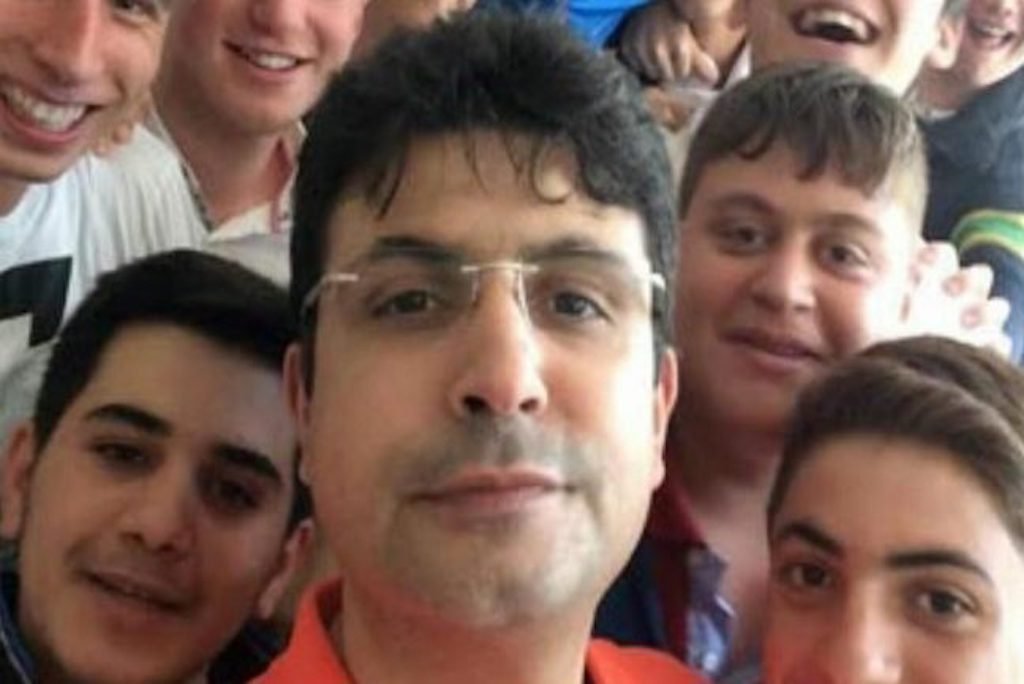Turkey’s main opposition Republican People’s Party (CHP) leader Kemal Kılıçdaroğlu on Tuesday hit back at a statement issued by the Istanbul Chief Public Prosecutor’s Office concerning the 2016 death of teacher Gökhan Açıkkollu, asking why allegations of torture had not been investigated, Cumhuriyet reported.
Following a statement made on March 6 by Kılıçdaroğlu concerning the death of Açıkkollu, the prosecutor’s office stated that the teacher died not due to not torture while in custody as the CHP leader said, but due to a heart attack. Mentioning a report by the Institute of Forensic Medicine on Açıkkollu’s death, the prosecutor’s office also accused people who say that the teacher died due to torture of “disseminating the propaganda of a terrorist organization.”
“Doctor Ömer Faruk Gergerlioğlu said: I have seen the judicial reports. The statement [of the prosecutor’s office] does not reflect reality. They [the prosecutor’s office] do not mention muscular bleeding on his back and neck, and the rib fractures on his right and left sides,” Kılıçdaroğlu said on Tuesday, in response to the statement from the prosecutor’s office.
“How can a person suffer rib fractures? Why are you disturbed by my statement? A lawyer says he has seen 15 people engaging in torture. Why, as a prosecutor, do you not call this lawyer to testify? If someone is guilty, you can try him in court. Why do you torture?” added Kılıçdaroğlu.
Renowned human rights activist Gergerlioğlu last Wednesday rebuffed a statement made by the Istanbul Chief Public Prosecutor’s Office about the death of Açıkkollu, accusing the office of distorting a report on the teacher’s death and not telling the truth.
“I know the judicial reports [about Açıkkollu]. The statement [of the prosecutor’s office] is wrong. They do not mention the hyperaemia and ecchymosis as noted by medical examinations [of Açıkkollu]. They do not mention muscular bleeding on his back and neck, and rib fractures on his right and left sides noted during the autopsy,” Gergerlioğlu tweeted.
Açıkkollu was detained on July 24, 2016 on trumped-up charges of coup plotting and terrorism and remained in police custody for 13 days, during which time he was subjected to both physical and psychological torture and eventually died.
“The İstanbul Prosecutor’s Office should explain why the people about whom criminal complaints were filed by Açıkkollu’s family were not questioned for one-and-a-half years and why the file was closed without any testimony being taken. I am a doctor and a human rights defender. This statement does not explain anything,” Gergerlioğlu said, adding: “The İstanbul Prosecutor’s Office should explain: If there was no torture, why they did not take the testimony of those 15 people and the person who said they would like to testify as a witness about the torture [that Açıkkollu was subjected to]?”
Gergerlioğlu also called on the prosecutor’s office to explain why 96 out of 100 insulin shots that the family gave to the police when Açıkkollu was in detention were returned to the family despite the fact that 40 of them should have been used.
“The Istanbul Prosecutor’s Office should explain: If there was no torture, why wasn’t the camera footage of the 14 days of his detention and autopsy released?”
Prof. Dr. Şebnem Korur Fincancı, president of the Human Rights Foundation of Turkey (TİHV), also commented on the statement from the prosecutor’s office.
“You should first prove that you have made a real investigation and explain the wounds that were noted during periodic doctors’ examinations [when Açıkkollu was] in detention,” Fincancı tweeted last Wednesday.
“Let me remind you once more: Torture is absolutely forbidden. Trying to legitimize it by saying ‘organization’ is within the context of the crime of torture.”
Fincancı said in a report that Açıkkollu had died from a heart attack stemming from the torture to which he was subjected.
Açıkkollu’s family learned of his death when they were called to the İstanbul Institute of Forensic Medicine, where Açıkkollu’s ill treatment continued even in death. They were told the funeral could be held on condition that he be buried in a graveyard set aside by the Greater İstanbul Municipality for alleged “traitors,” despite the fact he had not been tried, nor even interrogated. Imams assigned by the Religious Affairs Directorate (Diyanet) had refused to conduct the funeral prayer for Açıkkollu.
His family had to embalm the body themselves and took him to his hometown in Konya province in their own car. Here, too, the imam of the local mosque would not officiate at the funeral because of instructions issued by the Religious Affairs Directorate that “the funeral prayer will not be performed for traitors.” As a result, his last rites were said by his close relatives.
Last month Açıkkollu, who was detained for alleged membership in the faith-based Gülen movement, was “reinstated” to his job one-and-a-half years after his death.
The torture, ill-treatment, abusive, inhuman and degrading treatment of people who are deprived of their liberties in Turkey’s detention centers and prisons have become the norm rather than the exception under increased nationalistic euphoria and religious zealotry in the country in the wake of a coup attempt in July 2016 blamed by the government on the Gülen movement.
Turkey has suspended or dismissed more than 150,000 judges, teachers, police and other civil servants since the putsch. The interior minister announced on Dec. 12, 2017 that 55,665 people have been arrested. The Justice Ministry announced a day later that 169,013 people have been the subject of legal proceedings on coup charges since the failed coup.
A total of 48,305 people were arrested by courts across Turkey in 2017 over their alleged links to the Gülen movement, said Turkish Interior Minister Süleyman Soylu on Dec. 2, 2017.
“The number of detentions is nearly three times higher,” Soylu told a security meeting in İstanbul and claimed that “even these figures are not enough to reveal the severity of the issue.” (turkishminute.com)















